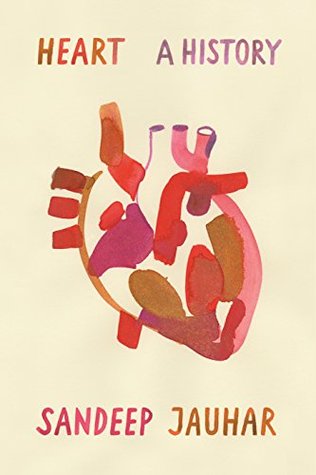More on this book
Community
Kindle Notes & Highlights
We have moved away from the emotional heart to a narrow focus on the biomechanical pump.
Though we know today that the heart is not the repository of the affections, it nevertheless remains the physiological canvas upon which our emotions are most easily written.
But he was a man of conviction, and there was nothing Gruentzig believed in more than himself.
After years of working in obscurity, Gruentzig quickly became one of the most famous cardiologists in the world.
He leaned forward, a bearded, wispy-thin gentleman in a vintage suit whose bowler and neckerchief lent him an arcane, vaudevillian air.
But apart from the money, a bigger question in my mind was whether the device was even right for Jack.
Pump failure is a horrible way to die. The symptoms it creates—nausea, fatigue, and unremitting shortness of breath—are some of the most torturous and feared in the human experience.
Purveyor of life, the heart is also its Grim Reaper.
This is essentially electrical chaos, and the heart (and its owner) quickly die.
Obviously, the last thing he wanted to admit is that he needed me or modern cardiology to keep him alive. But there wasn’t much more I could offer apart from the technology with which I had been trained.
But Lillehei, more than any doctor of the twentieth century, specialized in trying the outlandish.
“The warm moist environment of the human body proved a far more hostile environment than outer space or the bottom of the sea,” Greatbatch wrote.
peripatetic life.
Would he have to put people into cardiac arrest to see if his apparatus worked? (The answer was yes.) Was that even ethical?
When patients with heart failure begin to have frequent hospitalizations, it means their condition has taken a turn for the worse. It is a sign that the end is near.
“It gets weaker and weaker until it finally stops?” he said. I nodded, not having the energy to disabuse him of this misconception. I could feel his desperation. I had a son, too.
Treating congestive heart failure is a Sisyphean struggle.
Only about 3,000 Americans receive a heart transplant each year, though roughly 4,000 are on the transplant list and perhaps ten times that number would benefit from a transplant if an organ were available.
“Relying on transplants to cure heart failure is a bit like relying on the lottery to cure poverty.”
millions were being spent to put a man on the moon. Why couldn’t more money be invested to help Americans dying at home?
Such patients require permanent support or “destination therapy,” a bridge not to transplant but to eventual death.
Though some doctors viewed the experiment—two decades and $200 million in the making—as successful, most people were deeply disturbed by what they had witnessed. Some were repulsed that the human heart had been replaced by a machine made of metal and plastic. For them, the heart still carried special spiritual and emotional significance that made it impossible to replace with a man-made device.
(These concerns seem to ignore the fact that Clark viewed his participation as a sort of humanitarian mission. “It’s been a pleasure to be able to help people,” he said three weeks before he died. “And maybe you folks learned something.”) Still others were troubled by the fact that Clark never left the hospital. He had survived for almost four months, they said. But had he really lived?
The design, as Jarvik, the engineer, put it, “came from the understanding that people want a normal life and just being alive is not good enough.”
“After so many years of study, I’ve concluded that the best thing we can do for most of our patients is to give them medicine,” the cardiologist told me. “Of course, we need mechanical devices for patients who are crashing and burning, but for most of our patients the technology still has too many problems.”
As a doctor and just as a father, I found it a terrible thing to witness.
As a heart-failure specialist, I’d experienced enough death to fill up a lifetime. Once, it was difficult to witness the grief of loved ones. But my heart had been hardened, and this was no longer that time.


